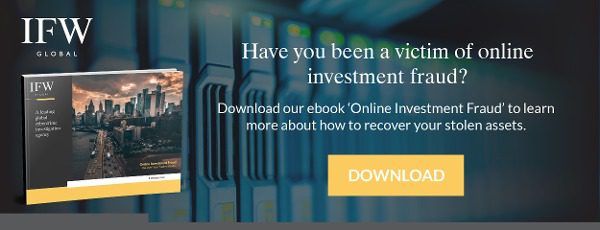Timing is crucial when you’re making financial investments. There’s a feeling among some business people that putting your money in too soon or too late can affect your returns.
When you are made to feel under pressure, it can be easy to make mistakes. It’s this simple tactic of having time at stake that many investment fraudsters and scammers use to push people into traps. If you think you might have fallen victim to one of these plays, you are not alone. ACCC Scamwatch reports that in the first six months of 2018 investment scams have already cost Australians more than $26 million. For those who feel they have been scammed, there are some clear first steps to take.
Read on to find out how to identify scams and who you should contact.
Warning signs for investment scams
Ideally, all investors would carry out thorough due diligence before investing. However, there are times when the due diligence is flawed or a warning sign is missed. There are instances when we are rushed and merely trust our gut instincts.
With investment fraud, there are three main types of scams involving:
- an offer that simply doesn’t exist
- an offer that exists but your money isn’t going into it
- a scammer pretending to represent a well-known company.
Using high-pressure sales tactics, the scammers aim to get you on board for a great deal. This is the case in forex scams, boiler room scams and many other types of serious fraud.
Signs that you may be dealing with scammers include when they:
- try to force you into a rushed decision
- have no evidence of an AFS licence
- have no prospectus registered with ASIC
- are based overseas, as the activity may be illegal in Australia
What to do when you suspect a scam
If further research indicates that you may have been scammed, the first step is to immediately stop sending money. Once scammers have their hooks in, they always ask for more money. They may say it’s needed for:
- fees
- administration work
- further investments.
Also, immediately speak to your bank and stop any pending transfer of funds.
You should also contact relevant authorities, which can vary depending on the type of scam. Keep a record of all details you can get from scammers. This includes email addresses, phone numbers and details of conversations, as they can also help.
Some common reporting bodies for scams are:
General scam: ACCC – https://www.scamwatch.gov.au/report-a-scam
Cybercrime: ACSC – https://www.cyber.gov.au/inancial scam: ASIC – https://asic.gov.au/about-asic/contact-us/
Local police may also be useful, but often cannot act in multi-jurisdictional situations.
Asset investigation and recovery services
Once a scammer has your money, it will not be given up voluntarily. And while there are some great services for recovering assets from local scams (including Fair Trading NSW for those originating in New South Wales), it is more difficult when they are based internationally.
In cases that originate overseas, specialist lawyers or international fraud investigation agencies like IFW Global can help. IFW Global has offices in four key countries and experience in multi-jurisdictional asset recovery.
Download our free ebook
To find out more about how an international investigation team can help recover assets from cybercrime, online scams and investment fraud, download the IFW Global free ebook – Online Investment Fraud: Recover Your Stolen Assets. It contains details of common investment scams and case studies of successful asset recovery.







 Philippines National Police
Philippines National Police  Californian Association of Licensed Investigators
Californian Association of Licensed Investigators  NSW Police Force
NSW Police Force  Philippine Securities and Exchange Commission
Philippine Securities and Exchange Commission 
